Find Help
More Items From Ergsy search
-
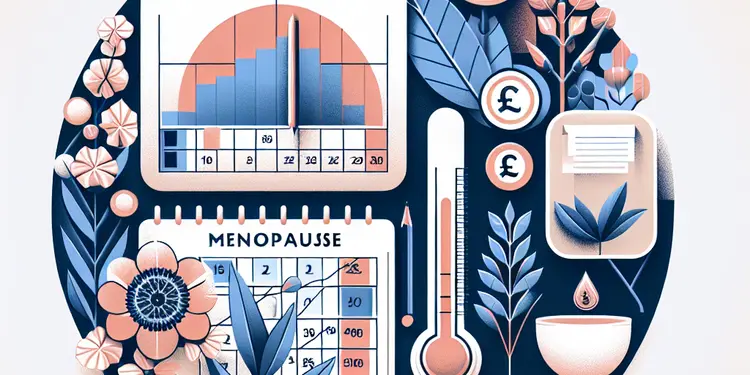
What is menopause?
Relevance: 100%
-
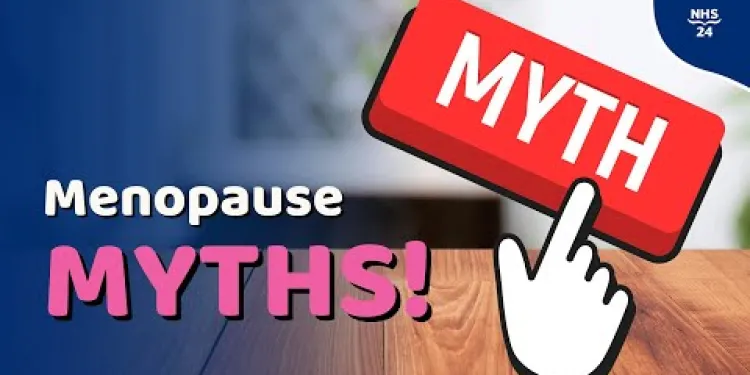
Menopause Myths
Relevance: 100%
-
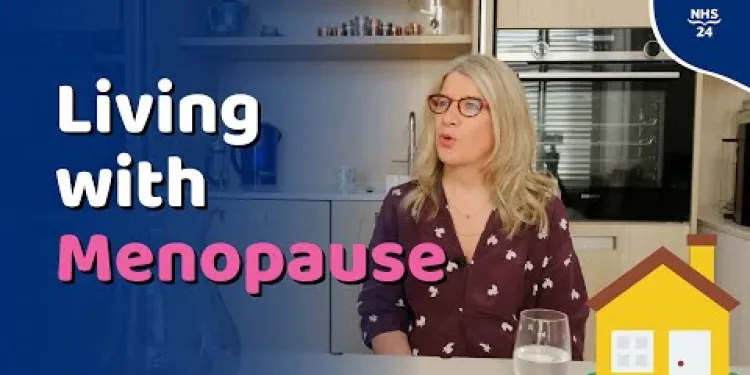
Living with the menopause
Relevance: 100%
-
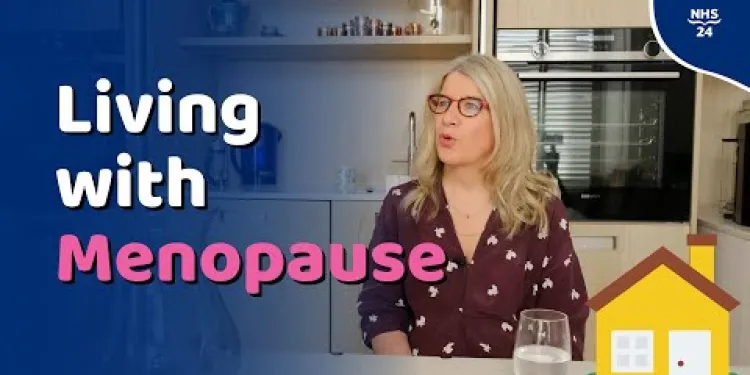
Living with the menopause
Relevance: 99%
-

What is menopause masking?
Relevance: 96%
-

What is menopause masking?
Relevance: 96%
-
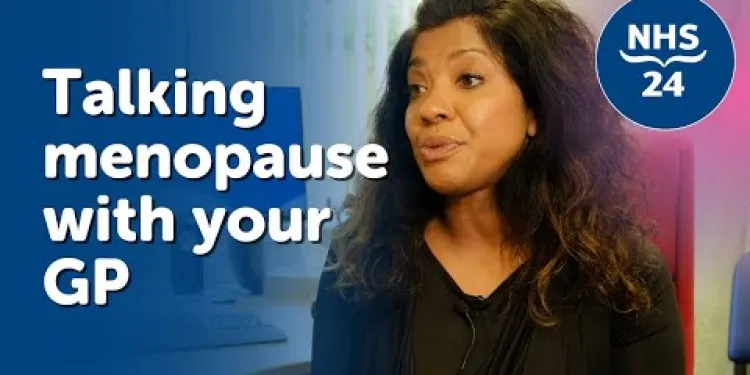
Talking menopause with your GP
Relevance: 93%
-
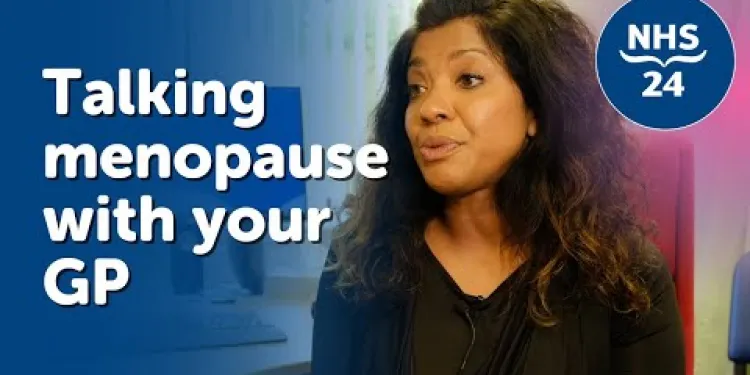
Talking menopause with your GP
Relevance: 93%
-
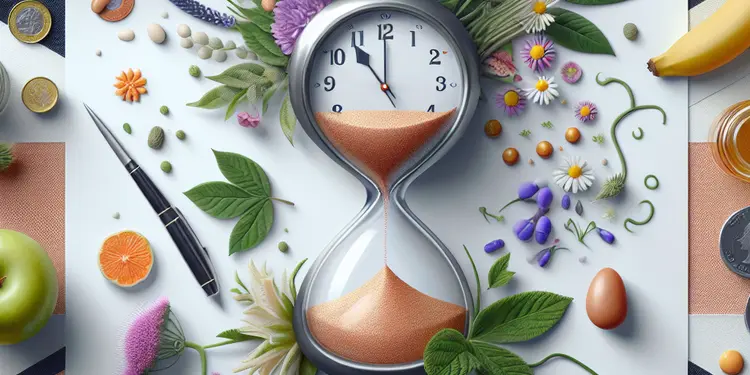
Is it possible to delay menopause naturally?
Relevance: 92%
-
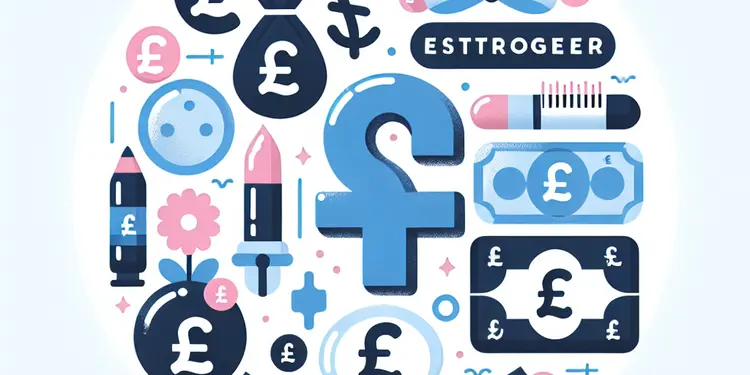
What is the role of estrogen in menopause?
Relevance: 91%
-
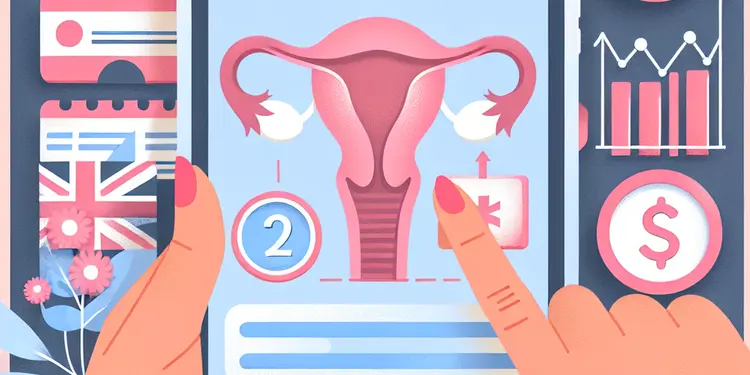
What are common symptoms of menopause?
Relevance: 91%
-

Are there natural remedies for menopause masking?
Relevance: 90%
-
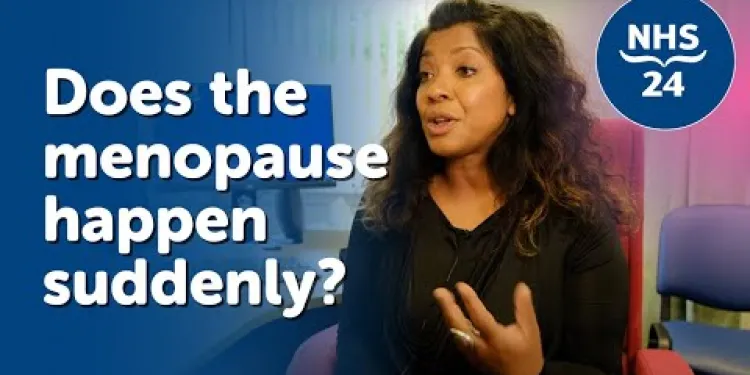
Does the menopause just happen suddenly?
Relevance: 89%
-
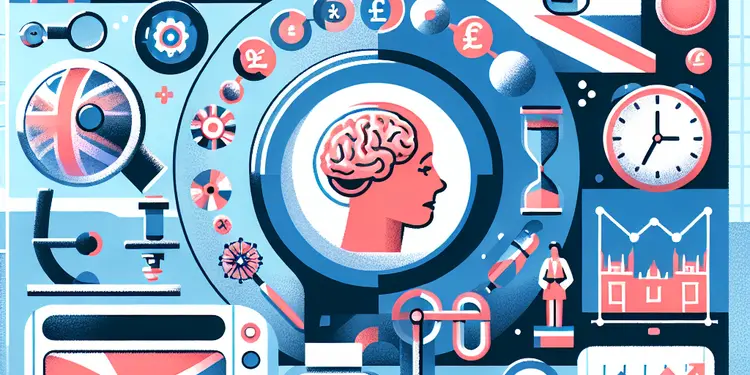
Is there scientific evidence linking menopause to dementia?
Relevance: 88%
-
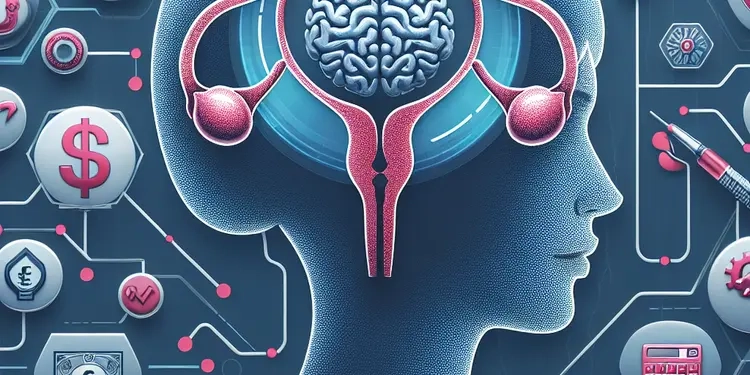
Is menopause linked to loss of brain matter?
Relevance: 88%
-
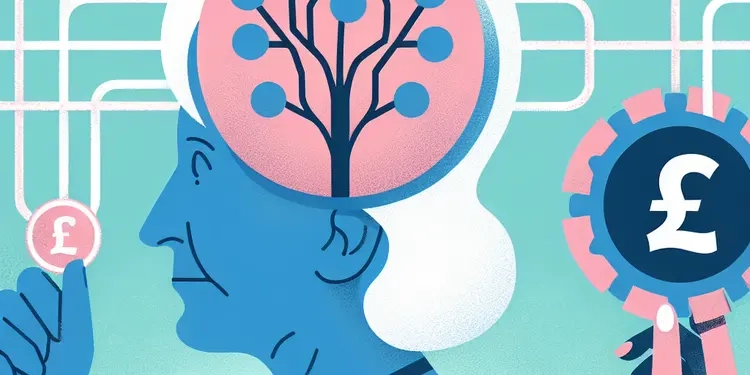
What are the links between menopause and dementia?
Relevance: 88%
-

Are there specific types of dementia linked to menopause?
Relevance: 88%
-
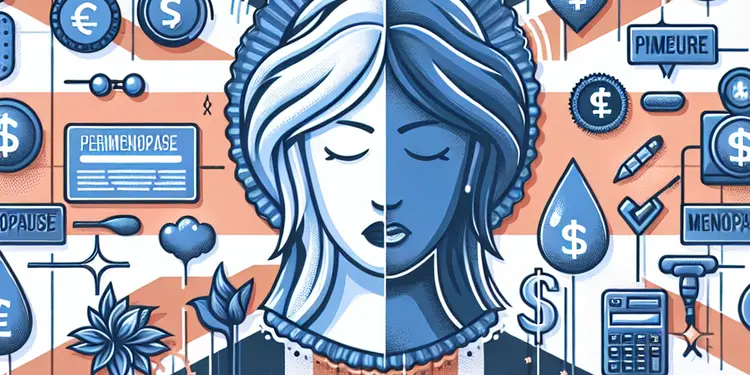
What is the difference between perimenopause and menopause?
Relevance: 87%
-

What treatments are available for menopause masking?
Relevance: 87%
-

Can acupuncture help with menopause masking?
Relevance: 87%
-

How long does menopause typically last?
Relevance: 86%
-
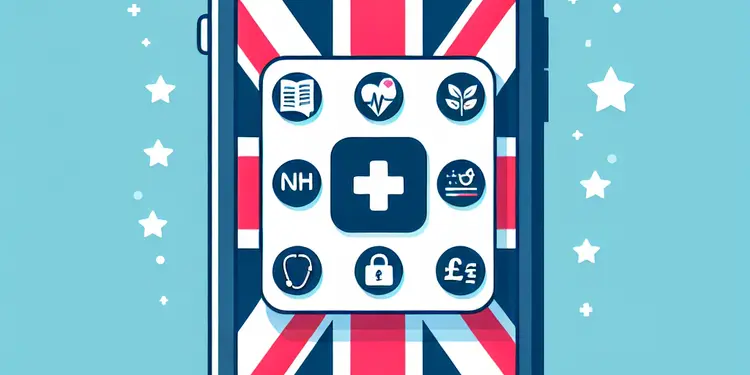
Are there any NHS apps for managing menopause symptoms?
Relevance: 86%
-
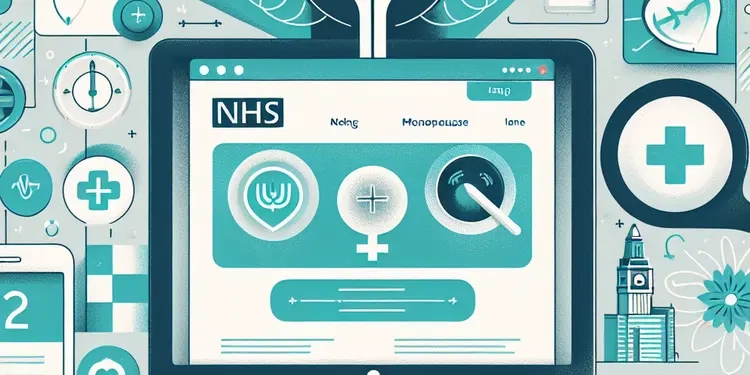
Does the NHS offer an online hospital for menopause?
Relevance: 86%
-
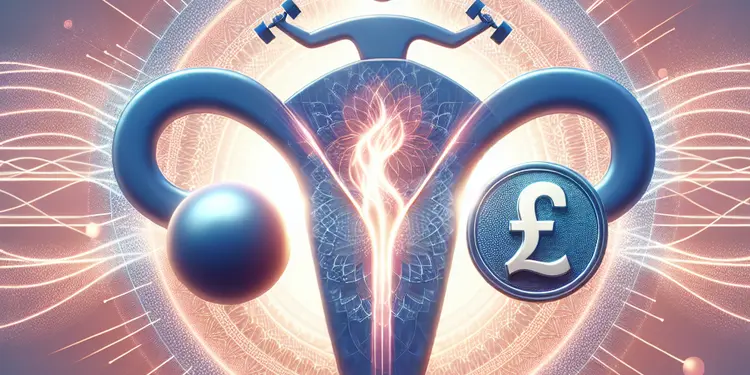
How does exercise impact menopause masking?
Relevance: 85%
-

Is the age of menopause onset related to dementia risk?
Relevance: 85%
-
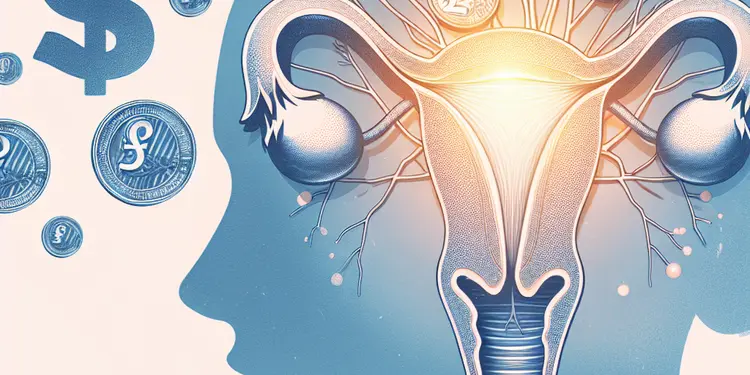
Can menopause affect bone health?
Relevance: 85%
-

What psychological effects can menopause have?
Relevance: 85%
-

Why do some women use menopause masking?
Relevance: 85%
-

Can stress management aid in menopause masking?
Relevance: 85%
-

Does the NHS offer an online hospital for menopause?
Relevance: 85%
-

Are there psychological impacts of menopause that affect cognitive health?
Relevance: 85%
-

Can lifestyle changes help with menopause masking?
Relevance: 85%
-
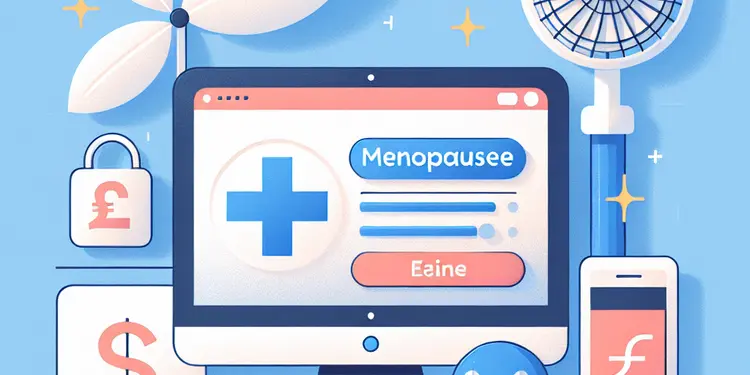
Does the NHS have an online symptom checker for menopause?
Relevance: 84%
-
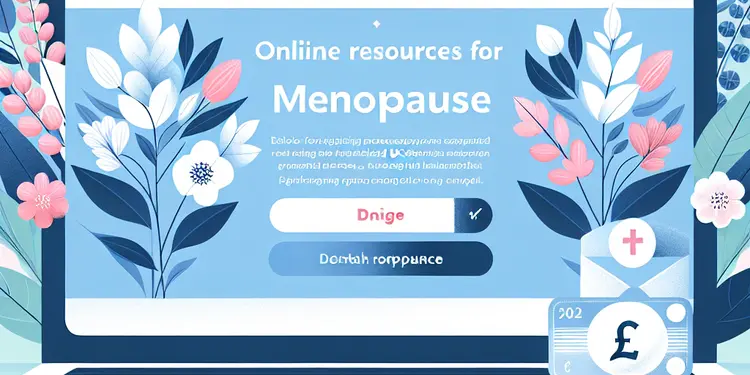
What online resources does the NHS offer for menopause?
Relevance: 83%
-

How does sleep quality relate to menopause symptoms?
Relevance: 83%
-
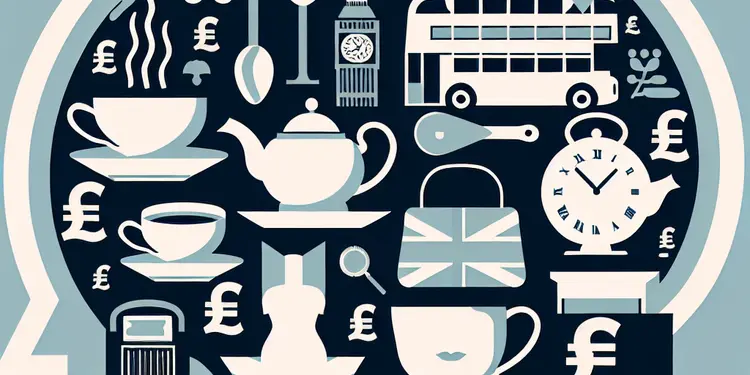
What further research is needed about menopause and dementia?
Relevance: 83%
-
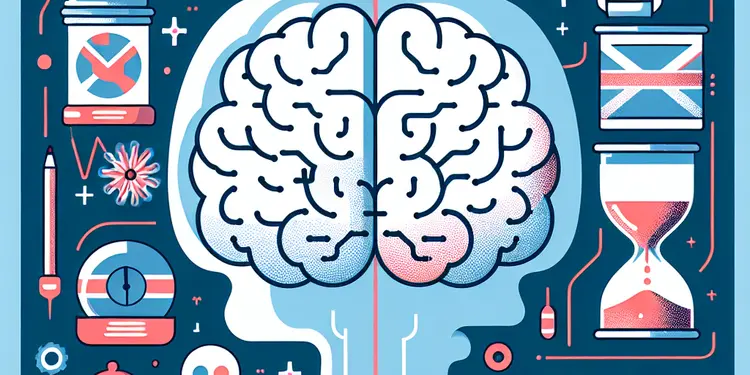
Do all women experience cognitive decline after menopause?
Relevance: 83%
-

What role does diet play in menopause masking?
Relevance: 83%
-
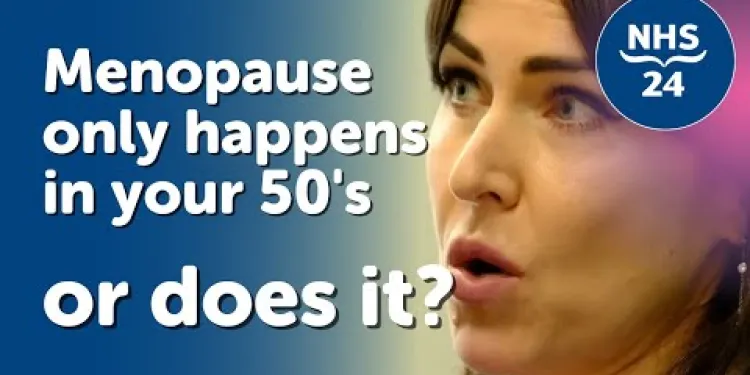
Does Menopause Only Happen in Your 50's? | NHS 24
Relevance: 82%
-

What are the signs of early cognitive decline related to menopause?
Relevance: 82%
Let's Talk About Menopause - The Queen Elizabeth Hospital King's Lynn NHS Foundation Trust
Understanding Menopause
Menopause is a natural biological process that marks the end of a woman's menstrual cycles, typically occurring between the ages of 45 and 55. It is diagnosed after 12 consecutive months without a menstrual period. Menopause can cause various symptoms and significantly impact a woman's health and well-being. The Queen Elizabeth Hospital King's Lynn NHS Foundation Trust is dedicated to offering support and information to help women navigate this transition.Symptoms and Management
Common symptoms of menopause include hot flushes, night sweats, mood changes, and a decrease in bone density. The intensity of these symptoms varies from woman to woman. Lifestyle adjustments such as a balanced diet, regular exercise, and stress management can alleviate some symptoms. Hormone Replacement Therapy (HRT) is another option available through the NHS, which can help balance hormone levels and reduce symptom severity. Always consult with a healthcare provider for personalized advice.Support and Resources
The Queen Elizabeth Hospital King's Lynn NHS Foundation Trust offers various resources for women going through menopause. Specialized clinics provide comprehensive care including medical advice, psychological support, and nutritional guidance. Educational sessions and support groups are also available, providing a platform to share experiences and strategies for managing symptoms.Accessing Care at Queen Elizabeth Hospital
Women experiencing menopausal symptoms can access care through their GP or directly contact The Queen Elizabeth Hospital King's Lynn NHS Foundation Trust. The hospital provides a multidisciplinary approach, ensuring that patients receive holistic and tailored care. For more information, visit the hospital's official website or contact the patient services department directly.Conclusion
Menopause is a significant phase in a woman's life that can bring about diverse challenges. However, with the right information and support, it can be managed effectively. The Queen Elizabeth Hospital King's Lynn NHS Foundation Trust stands as a beacon of support for women, offering comprehensive care and resources to aid in this transition, ensuring the utmost health and well-being of its patients.Let's Talk About Menopause - The Queen Elizabeth Hospital King's Lynn NHS Foundation Trust
What is Menopause?
Menopause is when a woman stops having her period. It usually happens between ages 45 and 55. You know menopause has started when there has been no period for 12 months in a row. It can cause symptoms that might change how a woman feels. The Queen Elizabeth Hospital King's Lynn is here to help and give information to women during this time.What Are the Symptoms and How Can They Be Managed?
Common symptoms of menopause include feeling hot suddenly, sweating at night, feeling moody, and weaker bones. These symptoms are different for each woman. To help feel better, it's good to eat healthy food, exercise regularly, and try to relax. Some women use Hormone Replacement Therapy (HRT) to help with symptoms. Always talk to a doctor to find out what's best for you.Where to Find Help and Information
The Queen Elizabeth Hospital King's Lynn offers lots of help for women going through menopause. They have special clinics for medical care, advice on feelings, and help with eating well. There are also learning sessions and groups where women can talk and share tips.How to Get Help at Queen Elizabeth Hospital
If a woman is having menopause symptoms, she can see her GP or contact The Queen Elizabeth Hospital King's Lynn directly. The hospital has many different types of care to make sure each woman gets the help she needs. For more details, you can visit the hospital's website or call the patient services.In Summary
Menopause is an important time in a woman's life and can be challenging. But with the right help and information, these challenges can be managed. The Queen Elizabeth Hospital King's Lynn is here to support women with care and resources to help them stay healthy and happy.Frequently Asked Questions
What is menopause?
Menopause is the time that marks the end of your menstrual cycles. It is diagnosed after you've gone 12 months without a menstrual period. Menopause can happen in your 40s or 50s, but the average age is 51 in the United Kingdom.
What are common symptoms of menopause?
Common symptoms of menopause include hot flushes, night sweats, mood changes, sleep problems, weight gain, and thinning hair.
How is menopause diagnosed?
Menopause is usually diagnosed based on your symptoms and menstrual history. Blood tests can measure hormone levels to support the diagnosis.
What treatments are available for menopause symptoms?
Treatments include hormone replacement therapy (HRT), lifestyle changes, and medications to manage specific symptoms such as antidepressants for mood changes or blood pressure medications for hot flushes.
What is hormone replacement therapy (HRT)?
HRT involves taking oestrogen to replace the decreasing levels of this hormone during menopause. It helps relieve common menopausal symptoms like hot flushes and night sweats.
Are there any risks associated with HRT?
HRT has potential risks, such as an increased risk of certain types of cancer, cardiovascular disease, and blood clots. It is important to discuss these risks with your healthcare provider.
Can lifestyle changes help manage menopause symptoms?
Yes, lifestyle changes such as regular exercise, a healthy diet, quitting smoking, and reducing alcohol intake can help manage symptoms and improve overall health.
Is weight gain common during menopause?
Yes, weight gain is common during menopause due to changes in hormone levels, a decrease in muscle mass, and a slower metabolism.
How can I manage mood changes during menopause?
Managing mood changes can include regular physical activity, relaxation techniques, adequate sleep, support from friends and family, and possibly counselling or medication if needed.
What are hot flushes and how can they be managed?
Hot flushes are sudden feelings of heat, typically most intense over the face, neck, and chest, which can cause sweating and discomfort. They can be managed with HRT, lifestyle changes, and non-hormonal medications.
Can menopause affect bone health?
Yes, menopause can lead to a decrease in bone density, increasing the risk of osteoporosis. Adequate calcium and vitamin D intake, regular weight-bearing exercise, and medications can help preserve bone health.
How does menopause affect cardiovascular health?
The decline in oestrogen levels during menopause can increase the risk of cardiovascular diseases. Maintaining a healthy lifestyle is crucial to protect heart health during this time.
Is it possible to get pregnant during menopause?
While fertility decreases during perimenopause, it is still possible to get pregnant until menopause is complete, which is confirmed after 12 months without a period.
What is premature menopause?
Premature menopause occurs when menopause happens before the age of 40. It can be caused by genetics, autoimmune disorders, or medical treatments such as chemotherapy.
Where can I find support and information about menopause?
You can find support and information from healthcare providers, support groups, reputable health websites such as the NHS, and organisations dedicated to women's health.
What is menopause?
Menopause is when a woman stops having periods. This usually happens between the ages of 45 and 55. It is a normal part of getting older.
Here are some tools to help:
- Use picture charts to understand more.
- Watch simple videos about menopause.
- Ask someone you trust to explain it to you.
Menopause is when your periods stop for good. Doctors say you have menopause when you haven't had a period for 12 months in a row. Most women in the UK have menopause when they are about 51 years old, but it can happen in your 40s or 50s too.
What happens when women stop having periods?
When women get older, they stop having periods. This is called menopause. Here are some things that might happen to their bodies:
- They might feel hot all of a sudden. This is called a "hot flash."
- They might feel moody or sad.
- They might have trouble sleeping.
- Their bones might get weaker.
- They might have dry skin.
- They might forget things easily.
Everyone is different. Some women might not have all these things happen.
If you want help, you can talk to a doctor. You can also use tools like calming music or making lists to remember things.
When women go through menopause, they might have:
- Hot feelings or sweating, called hot flushes.
- Sweating when they sleep, called night sweats.
- Feeling happy or sad suddenly, which are mood changes.
- Trouble sleeping well.
- Gaining weight, which means getting a bit heavier.
- Hair getting thinner, which means less hair.
If reading is tricky, try using tools that read out loud to you. It can also help to read with a friend or family member.
How do doctors know if someone has menopause?
Menopause is when women stop having periods. Do you or someone you know want to find out if it's menopause? Here is how.
Ask a doctor for help. They know the signs to look for. A simple blood test can also help. It checks the hormones in the body.
Keep a diary of your periods. Write down when they stop. This can help the doctor understand your body changes.
If you need help, you can use tools like calendars, reminders, or apps. These can help track your periods and feelings.
Doctors tell if you have menopause by looking at how you feel and your period history. Blood tests can check hormone levels to help know for sure.
What can help with menopause symptoms?
Menopause is when a woman's body changes and she stops having periods. Here are some ways to feel better if menopause makes you feel bad:
- Talk to a doctor: A doctor can tell you what might help.
- Medicine: Some medicines can help with hot flashes or feeling sad.
- Exercise: Moving your body can make you feel better.
- Eat healthy food: Eating fruits and veggies can help.
- Relax: Try deep breathing or listening to music.
- Sleep well: Try to go to bed at the same time every night.
You may also find it helpful to use picture charts or audiobooks to learn more about menopause.
Treatments can help. They include taking hormones, changing how you live, and taking medicines. Some medicines help with mood swings, like feeling happy or sad. Others help with hot flashes, like feeling too warm.
What is hormone replacement therapy (HRT)?
Hormone replacement therapy, or HRT, is a way to help people feel better. It is used when the body needs more hormones. Hormones are special chemicals in the body. They help you feel good and stay healthy.
Some people don't have enough hormones. This can happen as they get older. HRT gives them the hormones they need.
If you want to know more about HRT, you can:
- Talk to a doctor. They can help explain more.
- Look at books with pictures about HRT.
- Ask a friend or family member to help you learn.
HRT means taking medicine called oestrogen. Women take it when they have menopause. Menopause is when women's bodies change and stop making baby eggs. Oestrogen helps with menopause symptoms. These symptoms can be getting very hot suddenly (hot flushes) and sweating a lot at night (night sweats).
Tips to make reading easier:
- Try reading with a friend or family member.
- Use your finger to follow the words while reading.
- Take breaks if you feel tired.
- Listen to audiobooks to hear how words sound.
- Use apps that read text out loud to you.
Is Taking HRT Safe?
HRT stands for Hormone Replacement Therapy. Some people take HRT to feel better. But it's important to know if there are any risks.
Here are some ideas to help you understand:
- Talk to Your Doctor: They can tell you if HRT is safe for you.
- Ask Questions: It’s okay to ask about anything you don’t understand.
- Use Pictures: Drawings or videos can help explain things.
- Get Help: Ask for help from someone you trust.
Remember, it’s okay to ask for help to understand HRT better.
HRT can sometimes have risks. It might make it more likely to get some kinds of cancer or heart problems. It might also cause blood clots. Talk to your doctor about these risks.
Can changing how you live help with menopause symptoms?
Menopause can cause things like hot flashes and mood changes. Changing your lifestyle might help you feel better.
- Healthy Eating: Eating fruits, vegetables, and whole grains can help.
- Exercise: Moving your body every day can improve your mood and health.
- Good Sleep: Going to bed at the same time each night can help you sleep better.
- Stress Relief: Try deep breathing or talking to a friend to relax.
- Support Tools: You can use a journal to track your symptoms and see what helps.
If you need more help, talking to a doctor or nurse can be a good idea.
Yes, changing how you live can help you feel better. You can do things like:
- Exercise regularly. This means moving your body often.
- Eat healthy foods. Choose things like fruits and vegetables.
- Stop smoking. Smoking is bad for your health.
- Drink less alcohol. Try to have fewer drinks.
These things can help you stay healthy and feel good.
It can also help to ask a doctor or nurse for advice. They can give you tips on what to do.
Do women often gain weight during menopause?
Menopause is a time when women's bodies change. It is common for women to gain weight during this time.
Here are some tips to help:
- Eat healthy foods like fruits and veggies.
- Try to move and exercise often.
- Talk to a doctor or nurse for more advice.
Yes, many people gain weight during menopause. This happens because hormone levels change, muscles get smaller, and the body burns energy slower.
Tip: Try using tools like picture cards or storyboards to help understand the changes. Talking to a doctor or someone you trust can also help.
How can I handle feeling different during menopause?
Menopause can make us feel happy, sad, or angry. It's like a rollercoaster for our feelings. Here are some simple ways to help you feel better:
- Talk to someone: Chat with a friend or family member about how you feel.
- Exercise: Move your body by walking or dancing. It can make you feel happier.
- Eat healthy: Enjoy fruits, vegetables, and water to help your body feel strong.
- Rest: Make sure you get enough sleep at night.
- Relax: Try deep breathing or listen to calming music when you feel upset.
You can also ask a doctor for help. They can give you more tips and support.
Here are some ways to help you feel better:
- Move your body often. Try playing sports or going for a walk.
- Do things that help you relax, like taking deep breaths or listening to music.
- Make sure you get enough sleep at night.
- Talk to your friends and family. They can help you feel better.
- If you still feel upset, talking to a doctor or therapist can help. They might give you medicine to feel better.
What are hot flushes and how can we help them?
Hot flushes are when you suddenly feel very warm, like a rush of heat. They can make you sweat a lot.
Here are some ways to help:
- Wear loose, cool clothes.
- Drink cold water.
- Use a fan or keep a window open.
- Try slow breathing.
- Avoid spicy food and hot drinks.
Talk to a doctor if hot flushes bother you a lot.
Hot flushes make you feel hot all of a sudden. You feel it most on your face, neck, and chest. This can make you sweat and feel not so good. You can feel better by using HRT, changing how you live, or taking medicines that don't have hormones.
Does menopause change bone health?
Yes, when a woman goes through menopause, her bones can get weaker. This can make it easier for bones to break. It's called osteoporosis. To help keep bones strong, it's good to get enough calcium and vitamin D, exercise by moving your body with weights, and sometimes take medicine.
How does menopause affect heart health?
When women go through menopause, their bodies change. These changes can affect the heart. This is because the body makes less of the hormone estrogen. Estrogen helps keep the heart and blood vessels healthy.
Without enough estrogen, women might have a higher chance of heart problems. This can include high blood pressure and cholesterol. It is important to eat healthy food, exercise, and talk to a doctor about heart health.
Some helpful tools to check heart health are:
- Blood pressure monitor: This tool helps check if your blood pressure is okay.
- Heart rate monitor: This checks how fast your heart is beating.
Always ask a doctor if you have questions about your heart health during menopause.
When women go through menopause, a hormone called oestrogen in their body goes down. This can make it easier to get heart diseases. It's important to stay healthy to keep your heart strong.
To help, you can:
- Eat healthy foods.
- Exercise regularly.
- See your doctor often.
Remember, taking care of yourself is important!
Can you have a baby during menopause?
Menopause is when a woman stops having periods. It usually happens between 45 and 55 years old.
During menopause, it is very hard to have a baby. This is because the body stops releasing eggs.
If you have questions, talk to your doctor. They can help explain it better.
You can use tools like picture books or videos to learn more about menopause.
During the time before menopause, it can be harder to have a baby, but it's still possible until menopause happens. Menopause is finished when you haven't had a period for 12 months in a row.
Some helpful tips: Use a calendar to track your periods. Talk to a doctor if you have questions about having a baby. There are tools and apps to help you understand your body better during this time.
What is early menopause?
Usually, menopause happens to women when they are older, around 50 years old. But sometimes, it can happen earlier, before age 40. This is called "early menopause."
When a woman goes through menopause, her body stops having periods, and she can't have babies anymore. It is a natural change in her body.
If you want to know more or need help, you can talk to a doctor or use online tools to learn. These can explain things with simple pictures or videos.
Sometimes menopause can happen early, before age 40. This is called premature menopause. It can happen because of family history, problems with the body's immune system, or medical treatments like chemotherapy.
Where can I get help and learn about menopause?
Do you want to know about menopause? Menopause is when a woman stops having periods. It can feel different for everyone.
If you need help or information, here are some ideas:
- Ask your doctor. They know a lot about menopause.
- Visit a health clinic. Nurses can answer your questions.
- Look online for websites about menopause.
- Read books or magazines about menopause at the library.
- Talk to a friend or family member who knows about menopause.
Remember, you can ask for help if you need it.
You can get help and information from doctors, nurses, and support groups. You can also visit good health websites like the NHS, or organizations that focus on women's health.
Useful Links
This website offers general information and is not a substitute for professional advice.
Always seek guidance from qualified professionals.
If you have any medical concerns or need urgent help, contact a healthcare professional or emergency services immediately.
Some of this content was generated with AI assistance. We’ve done our best to keep it accurate, helpful, and human-friendly.
- Ergsy carfully checks the information in the videos we provide here.
- Videos shown by Youtube after a video has completed, have NOT been reviewed by ERGSY.
- To view, click the arrow in centre of video.
- Most of the videos you find here will have subtitles and/or closed captions available.
- You may need to turn these on, and choose your preferred language.
- Go to the video you'd like to watch.
- If closed captions (CC) are available, settings will be visible on the bottom right of the video player.
- To turn on Captions, click settings .
- To turn off Captions, click settings again.
More Items From Ergsy search
-

What is menopause?
Relevance: 100%
-

Menopause Myths
Relevance: 100%
-

Living with the menopause
Relevance: 100%
-

Living with the menopause
Relevance: 99%
-

What is menopause masking?
Relevance: 96%
-

What is menopause masking?
Relevance: 96%
-

Talking menopause with your GP
Relevance: 93%
-

Talking menopause with your GP
Relevance: 93%
-

Is it possible to delay menopause naturally?
Relevance: 92%
-

What is the role of estrogen in menopause?
Relevance: 91%
-

What are common symptoms of menopause?
Relevance: 91%
-

Are there natural remedies for menopause masking?
Relevance: 90%
-

Does the menopause just happen suddenly?
Relevance: 89%
-

Is there scientific evidence linking menopause to dementia?
Relevance: 88%
-

Is menopause linked to loss of brain matter?
Relevance: 88%
-

What are the links between menopause and dementia?
Relevance: 88%
-

Are there specific types of dementia linked to menopause?
Relevance: 88%
-

What is the difference between perimenopause and menopause?
Relevance: 87%
-

What treatments are available for menopause masking?
Relevance: 87%
-

Can acupuncture help with menopause masking?
Relevance: 87%
-

How long does menopause typically last?
Relevance: 86%
-

Are there any NHS apps for managing menopause symptoms?
Relevance: 86%
-

Does the NHS offer an online hospital for menopause?
Relevance: 86%
-

How does exercise impact menopause masking?
Relevance: 85%
-

Is the age of menopause onset related to dementia risk?
Relevance: 85%
-

Can menopause affect bone health?
Relevance: 85%
-

What psychological effects can menopause have?
Relevance: 85%
-

Why do some women use menopause masking?
Relevance: 85%
-

Can stress management aid in menopause masking?
Relevance: 85%
-

Does the NHS offer an online hospital for menopause?
Relevance: 85%
-

Are there psychological impacts of menopause that affect cognitive health?
Relevance: 85%
-

Can lifestyle changes help with menopause masking?
Relevance: 85%
-

Does the NHS have an online symptom checker for menopause?
Relevance: 84%
-

What online resources does the NHS offer for menopause?
Relevance: 83%
-

How does sleep quality relate to menopause symptoms?
Relevance: 83%
-

What further research is needed about menopause and dementia?
Relevance: 83%
-

Do all women experience cognitive decline after menopause?
Relevance: 83%
-

What role does diet play in menopause masking?
Relevance: 83%
-

Does Menopause Only Happen in Your 50's? | NHS 24
Relevance: 82%
-

What are the signs of early cognitive decline related to menopause?
Relevance: 82%


